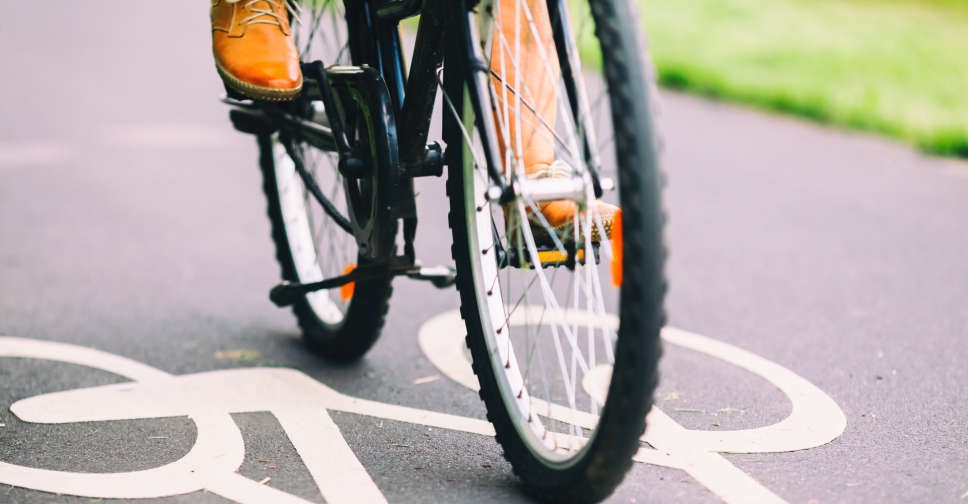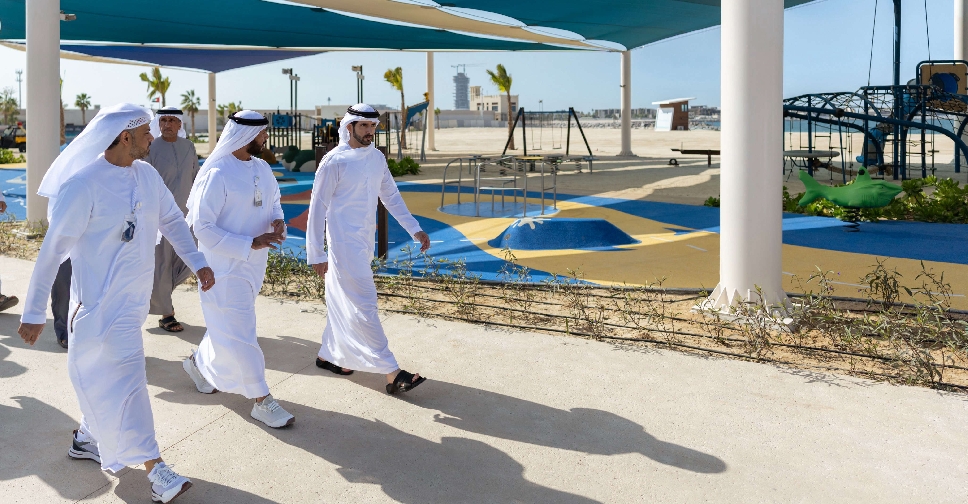
Riders must always wear safety helmets, only use dedicated lanes for cycles, give priority to pedestrians and not ride against traffic.
That's according to the latest guidelines from the Integrated Transport Centre (ITC) of the Department of Municipalities and Transport (DMT) in Abu Dhabi, which stressed that those caught violating the rules will face fines.
If there are no dedicated cycling tracks, riders can use side-roads as long as they maintain a speed limit of 20 kmph and stay on the far right-hand side of the roads.
Bikes must be parked only at designated spots, and not at places that block access to other vehicles or pedestrians. Bikes also can’t be chained to traffic signals or streetlight poles.
Only one rider is allowed to ride a bicycle, scooter or electric bike.
At night, riders must wear reflective clothing. All bikes must be equipped with a white headlight and a red taillight that can be turned on while riding at night, or a red light reflector, as well as a handlebar-mounted sound alert device and efficient brakes.
According to the guidelines, rental companies must acquire an official permit from the Integrated Transport Centre before beginning operations, and must ensure all bikes conform to the safety guidelines issued by the authorities.
All rental bikes must be fitted with tracking devices, with only individuals aged 18 and above permitted to rent them out.




 Dubai to plant 20,000 trees honouring H.H. Sheikh Mohammed’s leadership
Dubai to plant 20,000 trees honouring H.H. Sheikh Mohammed’s leadership
 H.H. Sheikh Hamdan: public beaches key to Dubai’s urban fabric
H.H. Sheikh Hamdan: public beaches key to Dubai’s urban fabric
 UAE and Ethiopia reaffirm strategic partnership during high-level talks
UAE and Ethiopia reaffirm strategic partnership during high-level talks
 Federal decrees name leadership team for National Media Authority
Federal decrees name leadership team for National Media Authority
 Dubai Police issue warning over domestic worker recruitment scams
Dubai Police issue warning over domestic worker recruitment scams
 H.H. Sheikh Mohammed reviews 20 years of government transformation
H.H. Sheikh Mohammed reviews 20 years of government transformation
 Abu Dhabi Police launch environmental patrol in Al Dhafra
Abu Dhabi Police launch environmental patrol in Al Dhafra
 UAE, Turkish Presidents discuss bilateral ties and regional developments
UAE, Turkish Presidents discuss bilateral ties and regional developments




